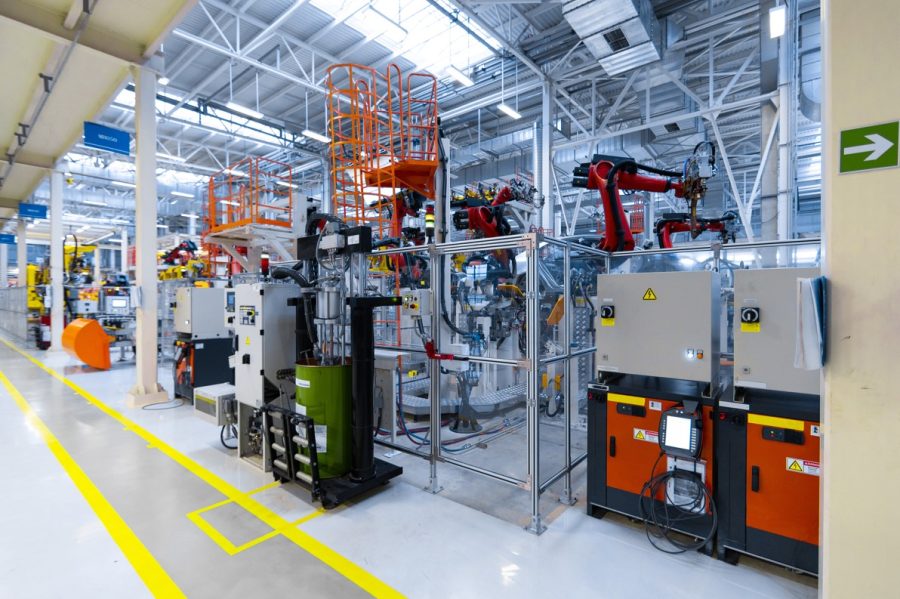Cement has long been used as a flooring material for factories and other industrial settings. While concrete has its benefits, this material can have a negative impact on the environment because of the way it’s produced along with other drawbacks. If you’re looking for an alternative to concrete that will still be suitable for your factory, you can choose from these other flooring types.

Rubber
Rubber often works well in factors because of its durability and versatility. This material can also make working conditions in your factory by reducing slip and fall risks thanks to rubber’s natural slip-resistant texture. Rubber won’t break down or form mold as easily when it’s exposed to moisture. Rubber can also resist fires better than many other types of flooring. Cleaning your factory floors will additionally be easier if you choose rubber flooring.
Acid Brick
This material is becoming a more popular flooring choice for industrial settings because of its ability to resist corrosion and high temperatures better. Acid brick is a dense material that’s highly durable and won’t break down easily if chemicals in your factory spill onto any floors that are lined with the material. If you currently have concrete flooring in your factory, contractors from Archway Brick and Tile or another flooring service provider can install acid brick material over the concrete to give all your floors better protection.
Steel Floor Plate
Even though this flooring type won’t be suitable for all areas of your factory, steel floor plate often works well in areas with very heavy traffic, such as loading ramps and platforms. Steel floor plate material may also be good for some of your factory’s walkways. The material has a diamond lug pattern that provides extra stability to help prevent anyone who walks across it from slipping.
Epoxy
Epoxy is actually a floor coating material that can be applied to the surfaces of different floor types to make them more durable. The epoxy coating may help your existing factory floors last longer by providing an additional shield that safeguards them from many of the effects of wear and tear. Epoxy coating can withstand heavy weight better and prevent your floors from cracking when heavy objects are placed on them. The coating is also resistant to fire and mold growth and can make floors easier to clean.
Concrete isn’t your only option when it comes to factory flooring, and any of these alternative floor types may be right for your industrial setting. The exact type of flooring that works the best for your factory will depend on the nature of your work and how much demand is put on your floors.